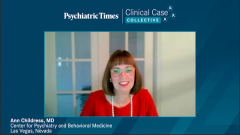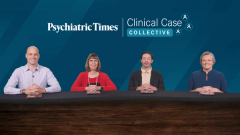
ADHD Treatment Options
Panelists discuss how comprehensive ADHD treatment approaches emphasize combination therapy and immediate implementation.
Episodes in this series

Attention-deficity/hyperactivity disorder (ADHD) treatment requires a multifaceted approach encompassing 4 primary categories: nonpharmacologic therapies, pharmacologic interventions, combination therapy, and additional mind-body interventions. Nonpharmacologic treatments include behavioral interventions, structured activities such as sports that provide purpose and and an energy outlet, and environmental modifications that create external structure to compensate for internal organizational deficits. Physical exercise and training interventions help improve executive function and attention while building essential life structures that support long-term success.
Combination therapy represents the optimal treatment approach, integrating both pharmacologic and nonpharmacologic interventions to address ADHD comprehensively. Although effective medications exist for ADHD, they are not silver bullets that resolve all challenges, making multimodal treatment essential for achieving the best outcomes. Patient empowerment remains crucial in treatment planning, as involving children in goal-setting and decision-making increases treatment adherence and success rates, even with young patients around age 10, who can meaningfully participate in shared decision-making processes.
Treatment implementation should begin immediately upon diagnosis, incorporating both medication and behavioral strategies from day 1 rather than sequential approaches. Environmental modifications play a critical role, such as creating distraction-free homework spaces and establishing morning routines that reduce overwhelm and family conflict. Simple interventions such as adjusting daily schedules can produce significant improvements, as demonstrated by cases where earlier wake times and morning showers eliminated chronic tardiness and reduced parent-child conflicts, showcasing how nonpharmacologic strategies can create substantial positive changes in daily functioning.
Newsletter
Receive trusted psychiatric news, expert analysis, and clinical insights — subscribe today to support your practice and your patients.









